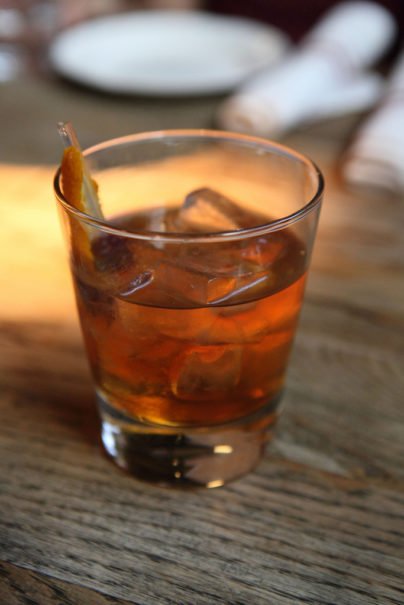
It Took a Catastrophe to Remind the Mainland U.S. That We Are Also Americans, FFS

It Took a Catastrophe to Remind the Mainland U.S. That We Are Also Americans, FFS

Shots of rum in St. Thomas
The night before Hurricane Irma arrived here on St. Thomas, I exchanged texts with a friend in Anguilla, asking her if I should be worried. I was expecting just a bit of wind and rain, nothing life-altering.
My phone’s signal faded before she could share the full scope of the madness I was about to encounter.
In a few hours I found myself dodging flying debris alongside my brother as we carried my wheelchair-bound, 80-year-old father to safety in an experience I’ll describe as nothing short of hell. The wind sucked a lady out of her window, hurling her to her death, while shattered glass slit the throat of a man who bled to death in front of his wife. An electrician was electrocuted while working on a downed power line. With our hospital decimated, patients have been airlifted to Puerto Rico and beyond.
In Irma’s aftermath, one American transplant, sitting comfortably on her boat over on St. John, lamented in People magazine about “the overwhelming smell of death in the air” instead of offering aid to those who now need so much of it.
It’s not the first time people here have felt alienated from our mainland counterparts. I’m heartbroken it took this devastation for the world, and, most importantly, our neighbors to the north, to take notice: to finally realize we in the U.S. Virgin Islands are Americans, too.
Living on the U.S. mainland, I explained time and time again that I’m a U.S. citizen. My first year at the University of Delaware, a state trooper called for back up when he saw my U.S. Virgin Islands license after a routine traffic stop, asking where St. Thomas was and accusing Caribbean immigrants of bringing drugs to his beloved country.
I emphatically repeated: “I’m a U.S. citizen.”
Well, not quite.
When I voted for President Barack Obama in 2008, I had been waiting for years to vote for an American president. Although we are U.S. citizens, Virgin Islanders have to become a resident of the state we live in to be able to vote for president. Since I reside in Miami, my vote counted as a Floridian and not as a Virgin Islander.
On the other hand, our status as a territory has led to an uneasy and awkward relationship with our Caribbean neighbors, who see us as having no true identity, but also grudgingly envy our U.S. citizenship, however second-class.
We’re basically a glorified colony of the United States, a country that celebrates its crusade against tyranny far and wide.
Purchased from Denmark in 1917 to protect the U.S. mainland from European incursions, our second-class status and the ignorance that reinforces it isn’t exclusive to that unruly cop who pulled me over many years ago. It also permeates mainstream media.
Like the media coverage preceding Hurricane Marilyn in 1995, most media outlets all but ignored the islands before Irma wreaked historic havoc upon us. My family and I sat their dumbfounded switching between network news channels in the lead-up to the storm. It was as if we didn’t exist.
In the fleeting moments when the U.S. Virgin Islands were mentioned, reporters painted a scene taken from an episode of Gilligan’s Island:
“American tourists on the U.S. territory are being cautioned to hunker down.”
Hmmmm. No mention of the estimated 100,000 Virgin Islanders who reside between St. Thomas, St. Croix, St. John, and Water Island. “Locals,” as we’re called, with a tinge of condescension.
Now seeing those same tourists and U.S. mainland transplants depending on us “locals” for their survival during this catastrophe is a sight to see. Our paradise now resembles the backdrop of an apocalyptic film: crumbled houses, never-ending food lines, and a procession of military trucks blaring admonishments at residents to get back home. With trees uprooted and stripped of their leaves, our once lush, green forest looks skeletal.
With no electricity, running water, or internet access, life after the storm is taxing indeed. I’ve even stared at a few of the stray chickens perusing the island and wondered just what they might taste like roasting over the coal pot I’m using to heat up my canned meals. Those roosters, crowing all hours of the day, are a nuisance anyhow. Before my daydream turns deadly, the animal lover in me snaps back to reality. Another meal of beans over rice it is, followed by a shot of Cruzan raspberry flavored rum right before bed.
As a community facing a catastrophe that threatened to completely wipe us out, I’m inspired by our resolve as we band together to restore what Irma stole.
There’s been some benefit in being disconnected from our American counterparts to the north. The sense of entitlement and bigotry that rips at the fabric of the mainland isn’t found here. We see human first and color a distant last. Now that we Virgin Islanders have been forced into the national psyche, the rest of America stands to gain from the lessons our tiny island has to offer.